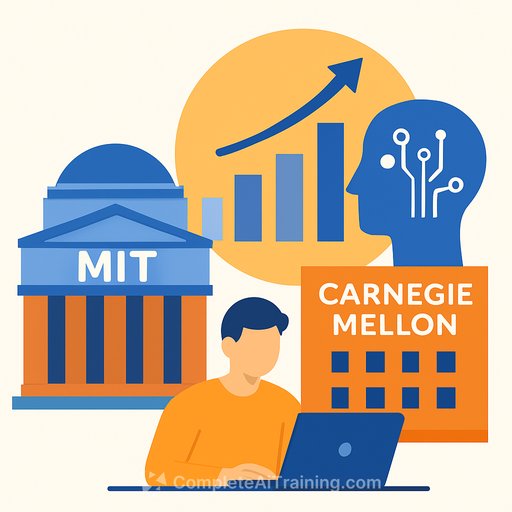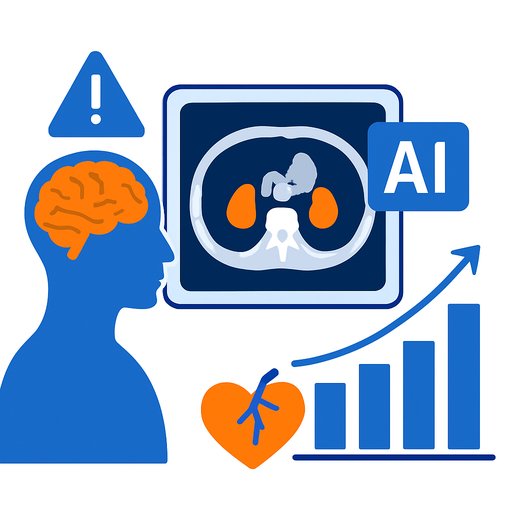QS World University Rankings by Subject 2025: MIT leads US data science and AI; Carnegie Mellon is a close second
The 2025 QS subject rankings place MIT at #1 in data science and artificial intelligence, with Carnegie Mellon at #2 in the US. Both deliver elite research depth, strong hiring outcomes, and wide recognition across academia and industry. For scientists and research leaders, the signal is clear: you'll find top-tier labs, collaborators, and pipelines at either institution.
Ranking snapshot
- MIT (Overall: 98) - Employer reputation: 100; H-index: 100; Academic reputation: 96.9; Citations per paper: 94.8
- Carnegie Mellon (Overall: 95.5) - Academic reputation: 100; Citations per paper: 95.9; H-index: 100; Employer reputation: 87
MIT edges ahead on employer reputation, signaling stronger industry pull. Both are research powerhouses with top H-index scores and high citation impact.
Student mix and network effects
- MIT: 67% domestic, 33% international
- Carnegie Mellon: 59% domestic, 41% international
Expect broad peer networks and diverse collaborations. The domestic majority at both schools also supports US-based internships and placements.
Subject strengths and approach
- Core areas at both: machine learning, big data analytics, robotics
- MIT: strong theoretical foundation paired with applied projects and lab work
- Carnegie Mellon: interdisciplinary emphasis blending computer science, statistics, and cognitive sciences
Choose the environment that best matches your research style-deep theory with application (MIT) or cross-disciplinary integration (CMU).
Admissions signals
- MIT: strong background in math/CS or related fields, competitive GRE scores, evidence of research
- Carnegie Mellon: strong analytical skills and a track record of innovation in tech or engineering
- Both: English proficiency; leadership and problem-solving strengthen applications
Tuition and total program cost
- MIT: about $59,000 per year; roughly $236,000 for four years
- Carnegie Mellon: about $58,000 per year; roughly $232,000 for four years
Budget for fees, living expenses, and research-related costs. Financial aid can materially change the picture.
Scholarships for US students
- MIT Scholarship Program: need-based aid via the financial aid office
- CMU Scholars Award: merit-based aid via the admissions portal
Apply early and review eligibility criteria tied to academics and demonstrated need.
Why this matters for US researchers
- High employability-MIT's perfect employer score highlights strong industry links
- Intensive research training-both programs build skills valued by labs, startups, and agencies
- Strong domestic cohorts-useful for US-focused collaboration and hiring pipelines
Decision guide
- Pick MIT if you want maximum industry pull plus theory-first rigor and large-scale lab projects.
- Pick Carnegie Mellon if you prefer interdisciplinary AI that blends CS, stats, and cognitive sciences.
- Both institutions offer world-class mentors, citations impact, and competitive placements.
Next steps
- Check the official subject results on QS: QS World University Rankings by Subject 2025
- Plan your upskilling path with curated programs: Latest AI Courses
Disclaimer
Fees, aid, and policies can change based on residency status, financial need, and program details. Verify current information directly with each university before applying.
Your membership also unlocks:






